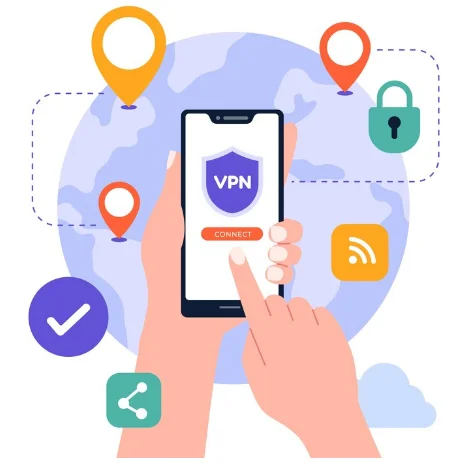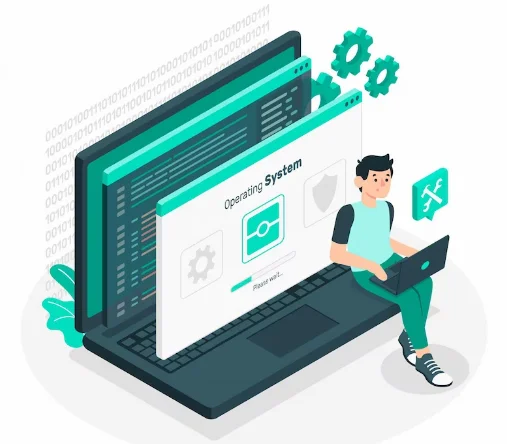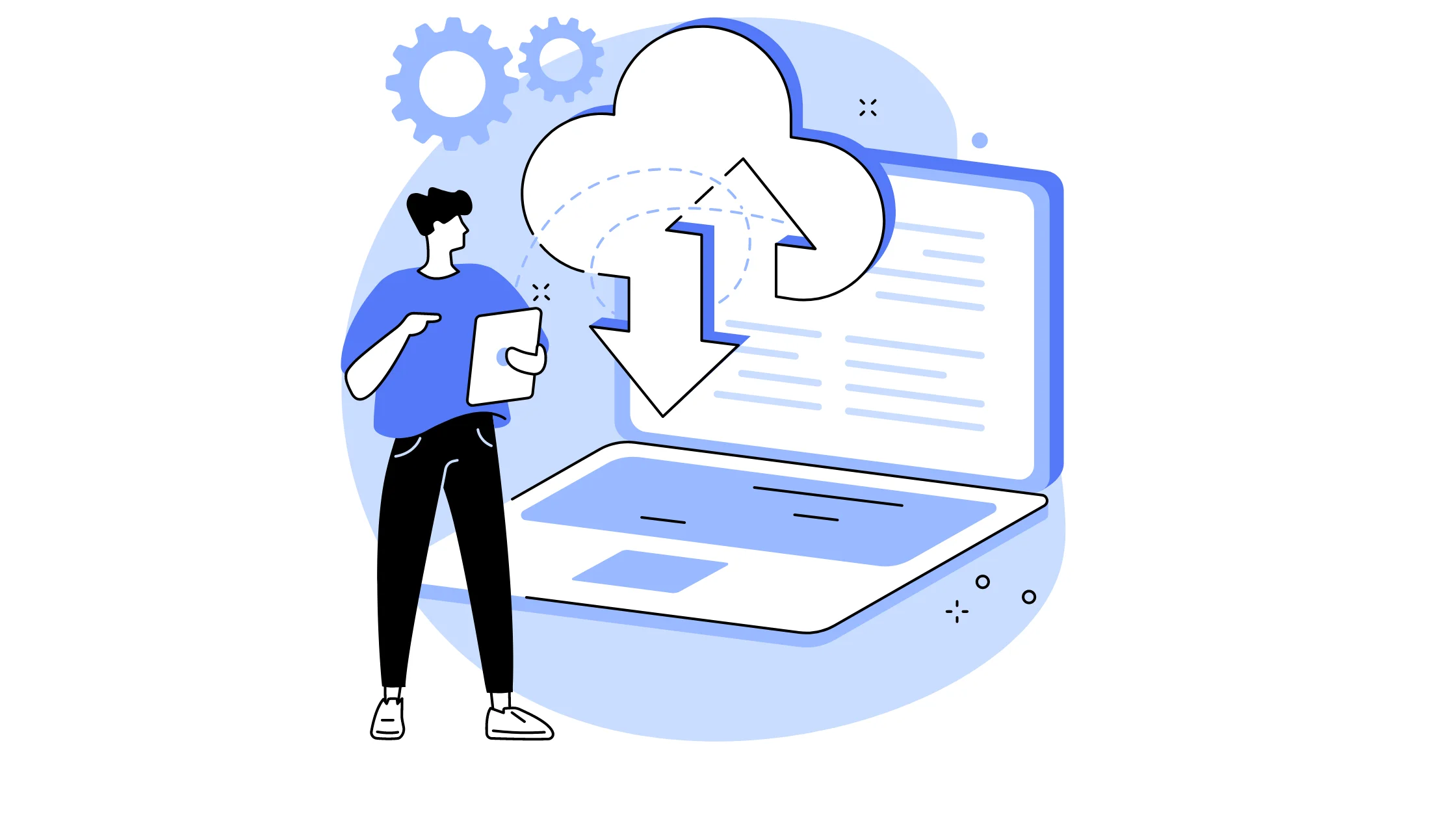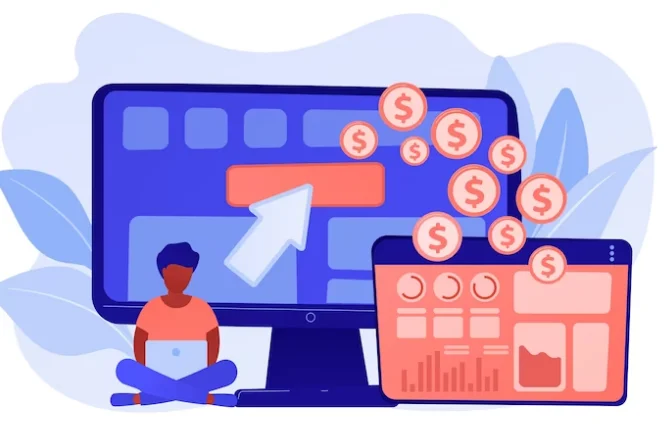If you’re unsure about buying proxies or how to buy proxies effectively, this article is for you.
I will explain the process of purchasing proxies, explain the different types available, explore practical ways to use them, and help you choose the right one from various providers in the article.
So, if you have been thinking of buying proxies or want to know more about them, then do read the article until the end. I have also shared my hidden tricks and tips on proxies.
Step 1: Find out why you need an IP address from a particular country

One big reason people buy IPs from certain countries is to circumvent geo-restrictions on the internet. Some websites and services only work in specific places.
For example, if you want to watch American Netflix, you need an American IP address. Otherwise, you’ll see a different set of shows or get an error message. But if you use a proxy with an American IP, Netflix thinks you’re in the US and lets you watch those shows.
Another reason is to get past internet censorship and spying. In some countries, the government blocks access to certain websites or watches what people do online.
For example, in China, sites like Google, Facebook, Twitter, and YouTube are blocked. But if you use a proxy with an IP from a different country, you can bypass these blocks and use the Internet freely.
A third reason is web scraping, which means automatically collecting data from websites. Many sites don’t like this and try to stop it. They might block or ban scrapers. Using a proxy with an IP from the same country as the site you’re scraping can help avoid getting caught.
For example, if you want to scrape Amazon UK, you need a UK IP. Otherwise, you might encounter issues like CAPTCHAs or limits on how much data you can collect.
Step 2: Decide what kind of proxy you need

Proxies come in different types, each with its advantages and disadvantages. Let me explain each below:
1. Shared Proxies:
- Used by multiple users at the same time.
- It is cheaper but may have lower performance, security, and reliability.
- Good for basic tasks like web browsing and social media.
2. Dedicated Proxies:
- Assigned to a single user.
- It is more expensive but offers higher performance, security, and reliability.
- It is ideal for tasks requiring high anonymity or speed, like web scraping and online gaming.
3. Residential Proxies:
- Sourced from internet service providers and residential proxy devices.
- It is more trustworthy but may have lower speed and stability.
- Great for tasks involving geo-restricted content and market research.
4. Datacenter Proxies:
- Use IP addresses from data centers.
- It is more easily detected and blocked but is suitable for high-volume requests and load balancing.
5. Mobile Proxies:
- Use IP addresses from mobile devices.
- Similar to residential IPs but change locations based on cellular networks.
- Excellent for location-based services and mobile app testing.
6. Rotating Proxies:
- Change IP addresses automatically after a period or number of requests.
- Useful for tasks like data scraping and avoiding IP bans.
7. Static Proxies:
- Use the same IP address for the session.
- Maintain a consistent online identity for tasks like online banking and shopping.
Step 3: Things You Need To Consider Before Buying Proxies

You might think that buying a proxy is simple, but there are important things to consider when choosing the best provider. Here are some criteria to keep in mind:
- Level of Anonymity: This shows how well the proxy can hide your identity online. Depending on what you’re doing, you might need high, medium, or low anonymity.
- Speed and Performance: A good proxy should be fast and reliable. Factors like bandwidth, stability, and how quickly it can handle requests all affect performance. Fast proxies make your browsing smoother and handle lots of requests without slowing down.
- Geographic Location: Where the proxy is located matters. It can affect which websites you can access and how accurate your data collection is. Depending on your needs, you might want a proxy in the same country as your target or somewhere else.
There are three types of proxy protocols (HTTP, HTTPS, SOCKS):
- HTTP: This is the most common type and is good for regular web browsing. It’s easy to use but doesn’t encrypt your data.
- HTTPS: Similar to HTTP but more secure. It encrypts your data for extra privacy.
- SOCKS: This is more versatile and can handle any type of traffic, including web traffic and streaming. These proxies are great for gaming or streaming because they support UDP traffic.
Understanding these criteria will help you choose the right proxy for your needs.
Step 4: Understand Proxy Use Cases For Businesses

Proxy services have many different uses in various areas. Let me explain so that you can see the best use case for proxy services according to your profession.
1. Price Aggregation:
Proxies help gather and compare prices from different e-commerce websites without getting blocked. They also help access content restricted to certain regions so prices can be displayed accurately.
2. Cybersecurity:
Proxies protect against cyber threats by hiding IP addresses and encrypting internet traffic. They also filter and block malicious requests, like DDoS attacks and malware.
3. Marketing:
Marketers use proxies to reach and engage their target audience on various platforms. They create and verify ads, monitor their brand’s online presence, and collect market data.
4. Brand Protection:
Proxies help monitor and protect a brand’s reputation, trademarks, and intellectual property. They detect and prevent fraud, counterfeiting, and unauthorized use of brand assets.
5. IT Departments:
Proxies help manage and control internet usage and access for employees or clients. They improve network performance, security, and reliability by caching, filtering, and load-balancing web requests.
6. Uptime and Performance Tracking:
Website owners and developers use proxies to monitor uptime and performance from different locations and devices. They simulate user behavior, identify issues, and ensure website reliability.
7. Data-as-a-Service:
Reliable providers use proxies to collect and deliver high-quality data to customers. Proxy servers ensure data privacy and security because they help bypass web restrictions, avoid IP bans, and avoid web restrictions.
8. SEO Services:
SEO professionals like me use proxies to gather and analyze competitor, keyword, and trend data. Proxies for SEO like optimizing websites, content, and campaigns for different search engines and regions.
9. Academia:
Academic researchers use proxies to access and collect data from restricted sources. Proxies improve online privacy, security, and efficiency for research purposes.
10. Government:
Government agencies use proxies to provide and access online services securely. Proxies help interact with the public and other agencies without revealing identity or location.
Step 5: Understand Proxy Pricing Models

When comparing different proxy pricing models, here’s what you need to know:
1. Pay-per-IP:
With this model, you pay based on how many IP addresses you use. It’s good for tasks that need a specific or dedicated IP, like online banking or shopping. But it can get pricey if you change IPs often.
2. Pay-per-GB:
This model charges based on the amount of data you use. It’s handy for tasks like web scraping or SEO, where you need a lot of data. However, costs can vary depending on the size of the web pages you access.
3. Pay-as-you-go:
Here, you only pay for what you use without any long-term commitments. This is great for tasks with irregular needs, like market research or bypassing censorship. However, it might not be as reliable or cost-effective as a subscription plan.
FAQs
🤔 What is proxy buying?
Proxy buying, also known as proxy purchasing, is the use of an intermediary service to make purchases on behalf of someone else or a business.
🧐 How does it work?
Proxy buying allows individuals or entities to access products or services that might otherwise be unavailable to them. This intermediary service acts as a middleman, facilitating the purchase process for the buyer.
😄 What type of proxy is considered the best?
Residential proxies are generally considered the best type of proxies for most purposes
🤨 Why are residential proxies considered the best?
Residential proxies use IP addresses assigned to real, physical devices, making them appear like regular users to servers. They are highly difficult to detect unless they are misused, and they facilitate easy access to data.
Quick links:
- How To Protect Your IP Address?
- How to Use Mobile Proxies to Manage Your Social Media Accounts?
- How To Find The Best Proxy Service Provider?
- How Often Do IP Addresses Change?
Final Words
Great job! If you are still here, then by now, you’ve learned about buying proxies and understanding their types. I am sure you have figured out which one suits you best.
But hold on, there’s more! Proxies can do so much, like accessing blocked content, keeping you safe online, and helping with marketing. With the right proxy, you’re not just browsing – you’re opening up a whole new online world.
Whether you’re into marketing, want to stay secure, or love digging into data, proxies can be your secret weapon online. So, explore, and let proxies make your internet experience even better!
